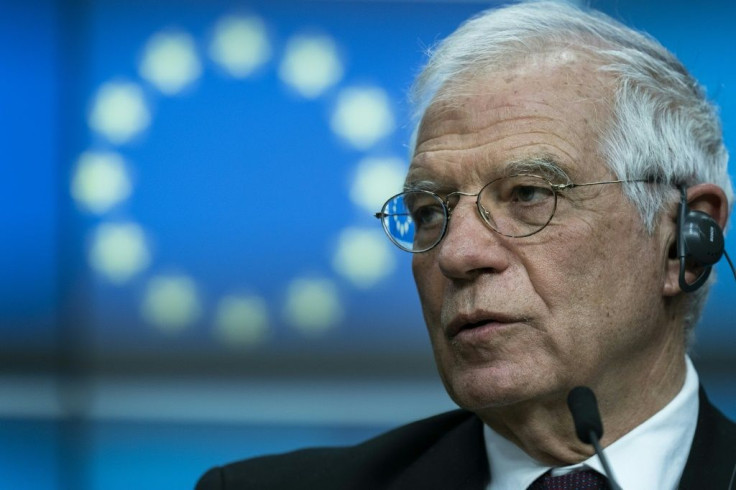EU Ministers Debate More 'Forceful' Libya Role

European foreign ministers discussed Monday how to wield influence "more forcefully" in Libya and restore an arms embargo against the country's warring parties.
The EU meeting in Brussels came a day after Germany hosted a summit to push for a ceasefire in the civil war, boosting calls for the relaunch of Europe's naval mission "Operation Sophia".
Before the meeting there had also been talk of a European military mission to monitor any ceasefire. But ministers were cautious on this.
EU foreign policy chief Josep Borrell said there had been "no concrete decision" but that ministers were discussing how the EU "can engage more forcefully".
Borrell will draw up more detailed proposals for ministers before their next meeting on February 17, but said that "there is an agreement in the council in order to revive, to refocus Sophia."
Fayez al-Sarraj, the leader of the UN-recognised government in Tripoli, and his strongman opponent Khalifa Haftar refused to meet face-to-face at the Berlin summit.
There has been no political agreement between the sides, but external actors like Turkey, Russia and Egypt have agreed to stop interfering in the conflict.
Until there is a ceasefire to monitor, talk of an outside force will recede. But in the meantime the EU ministers said they will seek a way to revive the Rome-based Sophia mission.
German Foreign Minister Heiko Maas played down expectations of a rapid end to fighting.
He told reporters that UN Libya envoy Gassam Salame would invite the sides to talks and foreign ministers of the countries involved could meet next month.
"We will deal with integrating the European Union into this process. The issue of the arms embargo will be raised in the United Nations Security Council," Maas said.
"In this respect, yesterday was only the starting signal that the civil war in Libya could be turned into a political process," he said.
Last week, Borrell had raised the idea of an EU force to monitor any ceasefire on the ground. Ministers did not rule this out, but their focus was on the naval mission.
Operation Sophia was set up in 2015 to combat people smugglers operating from the Libyan coast and to enforce a UN arms embargo on the warring parties.
It was suspended as a naval mission in March last year after Italy objected to rescued migrants being brought ashore in its ports, and it is now limited to aerial surveillance.
"We are not going to change but refocus (the) mandate of Operation Sophia, to refocus specially on the issue of embargo," Borrell, a former Spanish foreign minister, said after the talks.
"The arms embargo has to be controlled not only by sea, because most of the arms go through the desert. We can control the sea, but we also have to control the land and air," he said.
Borrell warned this "will require satellite and air tools which for the time being are not included in Sophia".
Italian Foreign Minister Luigi di Maio demanded the arms embargo be respected and promised that Rome is "ready to play a leading role" in resolving the conflict.
Operation Sophia should, he said, be focused on the arms embargo and monitoring any truce, suggesting that migrant safety will not be a priority.
An EU diplomat told AFP that Italy's government faces a tricky regional election in Emilia Romagna at the weekend, and fears boosting support for the anti-immigrant League party of former interior minister Matteo Salvini.
Libya has been torn by fighting between rival armed factions since a 2011 NATO-backed uprising killed dictator Moamer Kadhafi.
Most recently, Sarraj's troops in Tripoli have been under attack from Haftar's forces since April.
Clashes have killed more than 280 civilians and 2,000 fighters and displaced tens of thousands of people, despite a fragile ceasefire promoted by both Ankara and Moscow.
© Copyright AFP 2024. All rights reserved.





















